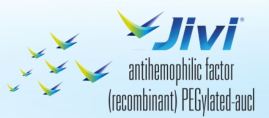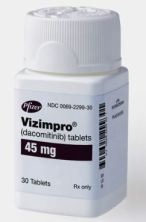
BOSE HEARING AID
Bose Corporation
INDICATION FOR USE: To amplify sounds for individuals 18 years or older with perceived mild to moderate hearing impairment (hearing loss)
ADDRESSING UNMET NEED:
- 37.5 million adults aged 18 and over report having some trouble hearing without a hearing aid
- First hearing aid authorized for marketing by the FDA that enables users to fit, program and control the hearing aid on their own, without assistance from a health care provider
DEVICE DESCRIPTION:
- User-fitted wireless air conduction hearing aid
- Captures sound vibrations through one or more microphones
- Signal is processed, amplified, and played back through an earphone placed in the ear canal
- Patients can adjust aid through mobile application on phone
- Enables users to fit the hearing aid settings themselves, in real-time and in real-world environments without the assistance of a health care professional
EFFECTIVENESS & SAFETY:
- Clinical data from 125 patients
- Self-fitting of the Bose Hearing Aid comparable to those with professional fitting
- Amount of amplification selected, speech in noise testing and overall benefit
- Patients preferred those hearing aid settings over professionally-selected settings
- Labeling to inform consumer when to consult a hearing health care professional
REGULATORY PATHWAY: De Novo request

JIVI [antihemophilic factor (recombinant), PEGylated-aucl]
Bayer Healthcare
INDICATION FOR USE: For use in previously treated adults and adolescents (12 years of age and older) with hemophilia A (congenital Factor VIII deficiency) for: on-demand treatment and control of bleeding episodes; perioperative management of bleeding; and routine prophylaxis to reduce the frequency of bleeding episodes.
ADDRESSING UNMET NEED:
- Option for : On-demand treatment and control of bleeding episodes; Perioperative management of bleeding; Routine prophylaxis to reduce the frequency of bleeding episodes.
MECHANISM OF ACTION: Site-specifically PEGylated recombinant antihemophilic factor [see Description (11)], temporarily replaces the missing coagulation Factor VIII. The site-specific PEGylation in the A3 domain reduces binding to the physiological Factor VIII clearance receptors resulting in an extended half-life and increased AUC
BENEFIT/RISK:
Benefits
- On-demand JIVI is effective for treatment of and prevention of spontaneous or traumatic bleeding in patients with Hemophilia A
- JIVI is effective in the perioperative setting for reduction of bleeding during surgery
- JIVI is effective in patients over years of age
Risks
- Hypersensitivity reactions and development of anti-PEG antibodies which resulted in loss of efficacy in patients <12 years of age
- Risk of development of inhibitory antibodies is considered an expected adverse event
REGULATORY PATHWAY: BLA

LIBTAYO (cemiplimab-rwlc) injection
Regeneron Pharmaceuticals
INDICATION: Treatment of patients with metastatic cutaneous squamous cell
carcinoma (CSCC) or locally advanced CSCC who are not candidates for curative surgery or curative radiation
ADDRESSING UNMET NEED:
- First approval of a drug specifically for advanced CSCC
- CSCC is the second most common human cancer in the United States with an estimated annual incidence of approximately 700,000 cases
- Immune checkpoint inhibitors targeting the the PD-1 / PD-L1 pathway for treating a variety of tumors, from bladder to head and neck cancer, and now advanced CSCC
EFFICACY:
- Two open label clinical trials, n=108 patients (75 with metastatic disease and 33 with locally-advanced disease)
- Primary endpoint: Objective response rate, or the percentage of patients who experienced partial shrinkage or complete disappearance of their tumor(s) after treatment
- 47.2% patients had tumors shrink or disappear
SAFETY:
- Severe and Fatal Immune-Mediated Adverse Reactions
- Infusion-Related Reactions, Embryo-Fetal Toxicity
- Common side effects: Fatigue, rash and diarrhea
- Must be dispensed with a patient Medication Guide
REGULATORY PATHWAY: BLA
- Breakthrough Therapy and Priority Review designations

VIZIMPRO (dacomitinib) tablets
Pfizer
INDICATION FOR USE: First-line treatment of patients with metastatic non-small cell lung cancer (NSCLC) with epidermal growth factor receptor (EGFR) exon 19 deletion or exon 21 L858R substitution mutations as detected by an FDA-approved test
MECHANISM OF ACTION: Irreversible inhibitor of the kinase activity of the human EGFR family (EGFR/HER1, HER2, and HER4) and certain EGFR activating mutations (exon 19 deletion or the exon 21 L858R substitution mutation)
EFFICACY:
- Randomized, multicenter, open-label, active controlled trialm n= 452 patients with unresectable, metastatic NSCLC, dacomitinib vs gefitinib
- Significant improvement in progression-free survival; no improvement in overall response rate or overall survival were demonstrated
- Median progression-free survival; 14.7 vs. 9.2 months p<0.0001
SAFETY:
- Warnings & Precautions: Interstitial Lung Disease (ILD), Diarrhea, Dermatologic Adverse Reactions, Embryo-Fetal Toxicity
REGULATORY PATHWAY: NDA
- Priority Review and Orphan Drug Designation
- Postmarketing study: Pharmacokinetic trial to determine an appropriate dose of dacomitinib to minimize toxicity in patients with severe hepatic impairment
Image credit: Bose, Bayer, Regeneron, Pfizer